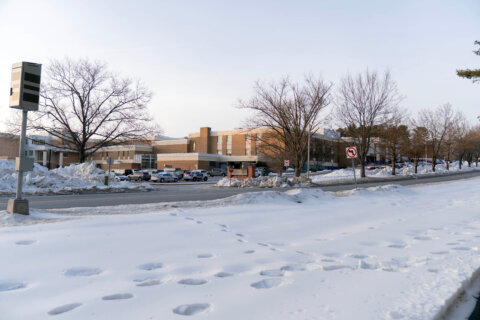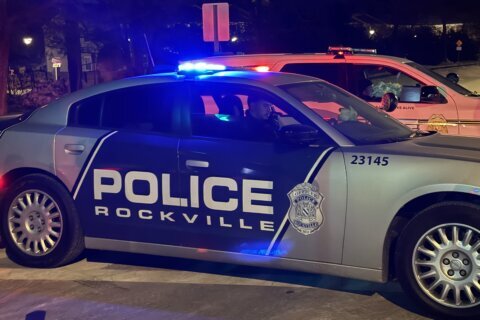The Maryland Court of Appeals will hear arguments to overturn the conviction of Daniel Beckwitt, the Bethesda man convicted of murder and manslaughter after a man’s body was found in tunnels underneath his house.
Beckwitt has been in a prison in Hagerstown since April 2019 in the death of Askia Khafra, 21, who was found burned to death in September 2017 in tunnels that he had been hired to dig underneath Beckwitt’s house.
A jury convicted Beckwitt of depraved-heart murder and involuntary manslaughter. The Maryland Court of Special Appeals in January overturned the murder conviction, but denied his appeal of the manslaughter charge.
The Court of Appeals on Tuesday granted what’s called certiorari in the case, essentially overturning the Maryland Court of Special Appeals’ ruling to deny that appeal.
Beckwitt had hired Khafra to dig a network of tunnels under his home near the National Institutes of Health.
The Maryland Court of Appeals asked attorneys to argue their points in November.
Beckwitt’s attorney, Megan Coleman, said her appeal is based on a number of points, including: whether the evidence was legally sufficient for the jury to find Beckwitt guilty of involuntary manslaughter, and whether the jury was properly instructed on the concept of “legal duty” — Beckwitt’s responsibility to Khafra as his employer — which is a part of the manslaughter charge.
Coleman said if the Court of Appeals rules in their favor when it comes to the failure to instruct the jury, Beckwitt would likely be retried, but that if the court rules that there was not sufficient evidence to convict him of murder or involuntary manslaughter, Beckwitt could not be retried and would go free.
Coleman said the court will likely issue its decision before September next year, ahead of the new term.
She told The Associated Press in January that guidelines for her client’s case would recommend a sentence ranging from 6 months to 5 years in prison for involuntary manslaughter.
Firefighters found Khafra’s naked, charred body in the basement of Beckwitt’s trash-filled house, only a few steps from an exit. Prosecutors said the extreme hoarding conditions in the Bethesda, Maryland, home prevented Khafra from escaping.
Khafra met Beckwitt online. Beckwitt had invested money in a company Khafra was trying to launch as he helped Beckwitt dig the network of tunnels. A prosecutor described Beckwitt as a skilled computer hacker who had a paranoid fixation on a possible nuclear attack by North Korea.
Beckwitt took elaborate steps to keep the project a secret. He tried to trick Khafra into thinking they were digging the tunnels in Virginia instead of Maryland by having him don “blackout glasses” before taking him on a long drive. Khafra had a cellphone with him in the tunnels, but Beckwitt used internet “spoofing” to make it appear they were digging in Virginia.
Khafra worked in the tunnels for days at a time, eating and sleeping there and urinating and defecating into a bucket that Beckwitt lowered down to him. The tunnels had lights, an air circulation system and a heater.
A hole in the concrete basement floor led to a shaft that dropped down 20 feet (6 meters) into tunnels that branched out roughly 200 feet (60 meters) in length. Investigators concluded the blaze was ignited by a defective electrical outlet in the basement.
Prosecutors said Beckwitt ignored obvious signs of danger and sacrificed safety for secrecy. Defense attorney Robert Bonsib told jurors the fire was an accident, not a crime. He described his client as an idiosyncratic but “incredibly brilliant” man who never intended any harm.
The appeals court panel’s ruling says depraved heart murder requires an “extreme indifference to the value of human life,” whereas gross negligence involuntary manslaughter requires only “a wanton and reckless disregard for human life.”
The panel said Khafra wouldn’t have died if Beckwitt hadn’t arranged for him to work in a dangerous environment. But the judges noted that prosecutors did not present evidence that the tunnels themselves were structurally unsafe.
The Associated Press contributed to this report.








